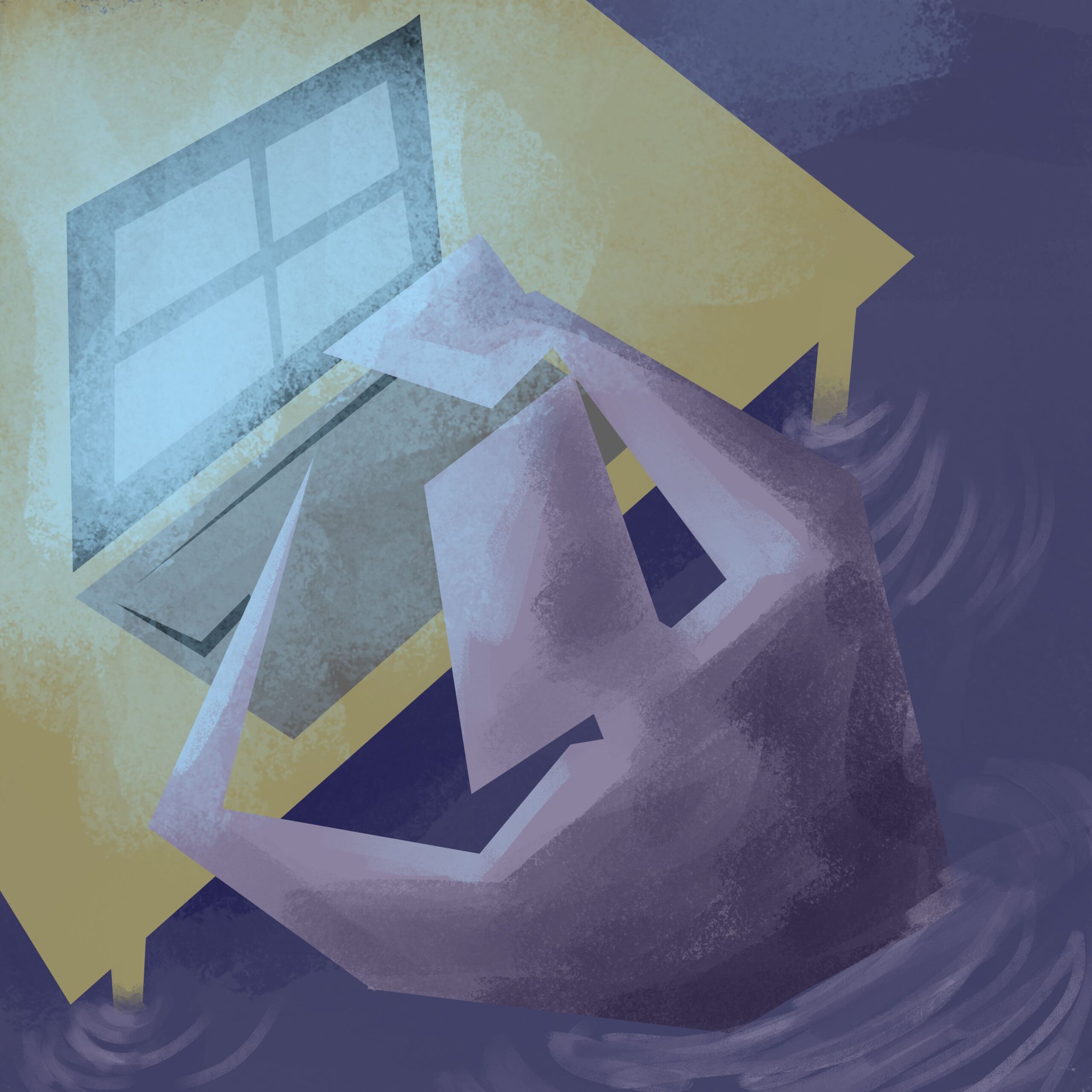Zoom Fatigue: Introducing student burnout on a whole new level. Graphic by Elizabeth Wong.
As the pandemic soars, students and colleagues continue to log onto Zoom, but the recent rise in video-chat communication has led to burnout and consequences in users.
As a first-year university student, the pandemic has had quite an effect on my schooling experience. Most of my classes have been fully online, and I spend my nights “Zooming” with members of my sorority and organizations.
My friends and peers have had similar experiences to mine, and this has led to “Zoom fatigue” within all of us. This burnout is associated with the overconsumption of screen-time, and has been scientifically proven to have effects on the human mind and body by the Stanford Virtual Human Interaction Lab.
Personally, I have noticed my own Zoom fatigue, and have concluded that I experience the sleep problems that come with it.
I have always been a heavy sleeper, but I have noticed that my sleeping habits have drastically changed since the beginning of my first semester. For example, in high school, I sat in the front row, would actively participate in class, had almost perfect attendance and never once slept through a class. However, now that I spend most of my classes on Zoom, I end up falling asleep.
This isn’t something I’m proud of, but I have been having trouble breaking this habit. Because my classes are online, I spend most of my day looking at screens between virtual classes, social media use, homework and extracurriculars.
This has not only fueled my screen time and social media addiction, but it has allowed me to stay in bed during my classes, further dwindling my motivation.
By the time I go to bed at night, which is usually around 2 a.m., my average phone screen time comes in at 8-10 hours, and that doesn’t even include the time I spend on my laptop. I end up falling into a deep sleep, causing sleeping through my alarms and classes.
This has not only affected my grades but my mental health as well. I know that I feel better when I’m productive, but my Zoom fatigue has made it hard to find the motivation to go to online classes, especially when I would rather sleep and re-energize myself for my homework and extracurricular activities.
According to the Stanford study, there are a few causes for Zoom fatigue, and there are “simple” ways to fix it. They suggest that video conference fatigue is caused by reduced mobility, the highly intense eye contact we have with the screens and ourselves and the excessive cognitive load.
The study states that in order to combat the consequences of screen time, we should take breaks from socializing with others, looking at ourselves and staring at the screen.
This can be done by taking the app off of full-screen mode, by “hiding self-view,” by designating an area to video conference in and by switching to “audio-only” mode. This reduces the amount of time we spend looking at and criticizing ourselves and gives our eyes and brains a break.
Much like myself, other university students have experienced the effects of Zoom fatigue.
Margaret Kenyon, a third-year student at the University of Rhode Island, said that her study habits have changed since she has started taking online classes.
“I feel like I don’t pay attention all of the time, and it’s not that I don’t want to, it’s just that the material online is not engaging enough,” Kenyon said. “It’s harder to take notes on Zoom, and I stay up a lot later. Before, I was never behind on work, but now I am all of the time.”
Another student, Ajani Cornelius said that he is experiencing the effects of Zoom fatigue, as a first-year football player.
“We got to wake up at 6 a.m. every day and practice until noon, so by the time I get back to the room and have class, it’s hard to stay awake,” he said. “I doze off because I’m already in my room, tired out and the classes just aren’t engaging.”
Although things are still subject to change, most classes are planned to be in person next semester. This will hopefully refresh our minds, give us some motivation and help us rid ourselves of the newest COVID-19 symptom: Zoom fatigue.

